The state of our school: memoirs and morale of students and staff
The COVID-19 pandemic greatly shook the normal order of life in Pleasanton, forcing people into isolation and schools online. Now, as we’re back at school in a new normal, we wondered how student and staff morale at Amador had been affected by the pandemic and the return to in-person learning. Join reporters Carol Xu and Katy Clark in their investigation to find out the real state of our school, through the spotlights of various students, teachers, and counselors.
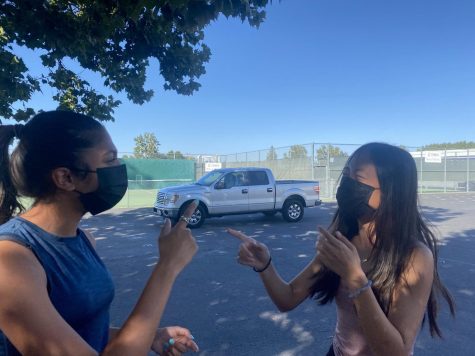
“It’s up to the rest of us to try to act like a team”
During online learning, computer science teacher Richard Hanson, along with countless other teachers at Amador, had ups and downs with teaching in a remote environment.
“I failed at finding a way to have students make those same connections. I don’t know what I could have done differently, but I know what it’s like when we’re in-person and I know what happened last year, and it was not the same,” said Hanson.
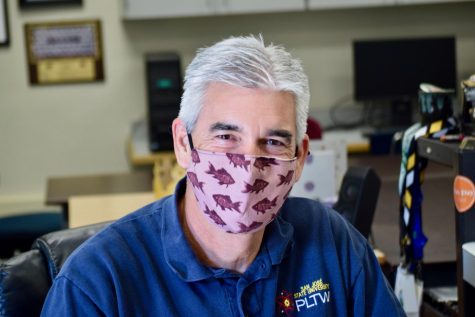
Now, with the return to school, Hanson could not be more relieved and excited, but the challenges of COVID remain prominent struggles dealing blows to his morale.
“Even when I try to put [the bad things] aside when I’m dealing with students and try to make [them] understand that they are special to me and they should be valued, sometimes those other parts of my life tend to permeate my being and makes it a little bit harder to do that,” said Hanson.
Not all of Hanson’s colleagues are reunited at school, however. Last year, a high number of teachers at Amador either left or retired, including some of his best and closest friends, like STEM teachers Debbie Reinke and Clif Simms and Paula Simms.
“They are very special, and we lose that perspective, too, that they provide, not that new teachers aren’t good to have, but you don’t want to lose the perspective and you don’t want to lose that history,” said Hanson, “We lost a bunch of teachers last year all at once, and that effect is going to be felt, but it’s up to the rest of us to try to act like a team and pull our weight.”
One of his most vivid memories is from his first day of teaching at Amador in 1993, when a long-time teacher told him the entire department was a team, and he needed to play along and contribute.
“We’re only as strong as our weakest link, [and] if we don’t keep everybody on the same team and pulling together, then we have a tendency to crumble,” said Hanson.
He holds his colleagues, both new and old, in high regard, and admires both their work ethic and inspirational teaching. When asked which teacher’s class he himself would want to enroll in, he chose social studies teacher Christopher Murphy.
“We have so many super inspiring, great teachers. I don’t want to single anyone out, but I would love to spit spitballs at Mr. Murphy,” said Hanson.
It is this kind of humor that Hanson uses to foster strong relationships with his students. He believes that it’s important for teachers to get to know their students personally, instead of just memorizing their names.
“I don’t want to push too much, but asking about their lives, taking some interest in them, as well as joking around and showing them that you’re human, will go a long way to having them open up and be willing to talk and connect with you,” said Hanson.
Having known since fifth grade that he wanted to be a teacher, Hanson loves the unique experiences his job offers him. He feels thankful towards the entire Pleasanton community for helping bring back in-person classes, and hopes that people can show more gratitude to those around them.
“I don’t think it’s just one-way thankfulness, it’s both ways, and I’d like to see us all have, at the top of our minds when we’re approaching each day, that we want to be thankful for our classmates, our administrators, custodians, and other support staff,” said Hanson.
His final words of wisdom for all students at Amador? Focus on the future, but also pay attention to the present, because the present is a gift.
The school events that positively shape a year at Amador
After quarantine, students coming back to Amador are trying to embrace school spirit, something that was hard to find last year during remote learning.
From football games to rallies, students are excited to participate in all that student life has to offer this year.
“It was kind of hard to connect with my teachers, especially online [last year]. I felt like I didn’t get to know my classmates,” said Savanna Harper (‘23).
Students are also faced with the challenge of going back to a full eight hour day of school, contrasting greatly with the four hour schedule students had grown accustomed to during the pandemic.
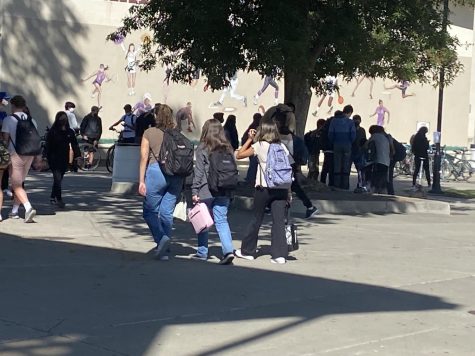
“It feels way longer, because I’m coming from four hours [in online-learning at] home to eight hours [now] being at school [so it’s] definitely a challenge when coming back to school,” said Harper.
During the pandemic, due to a lack of competitions and participation, the morale in sports decreased. Cross country captain Ella McCarthy (‘22) wants to create a strong sense of community within her team, and is planning team-bonding events to boost morale and get them excited for real races again.
“During COVID online when we didn’t have a real season, morale was more down, [but] now that we are racing people are more excited to run,” said McCarthy.
This year she’s trying to take advantage of every opportunity she can to participate in spirit events on campus. She’s already taken part in Don Deckout, football games, and many senior events.
“I’m going to Homecoming and senior ball if we have it,” said McCarthy.
Homecoming is a chance for the whole school to come together and celebrate their achievements, while dressing up and taking photos with their friends.
“I’m definitely excited to have homecoming this year and I really hope it happens, especially since we did not have it last year and since it’s my junior year it will be fun to have it,” said Harper.
However school is not the same as it was in 2019 and there are now new restrictions in place to make sure the community stays safe. Masks are required during the school day and students have to be in assigned seats for contact tracing. But one thing is for sure, the Amador Dons are back on campus and doing the best they can to create a safe environment.
“Community is the medicine we need right now”
Growing up, Nicole Twohig always knew counseling was an important job, but she never knew just how indispensable it was until the COVID-19 pandemic.
“The pandemic’s really highlighted, especially in this very uncertain time, how important it is to focus on mental health and have mental health support in schools,” said Twohig.
In the beginning, she found herself straining to give students the best support she could. In prior years when a student had a problem, she had a list and toolbox in her head from which she could readily whip out the right tool to help the student. But the pandemic changed all that.
“We didn’t know how to handle it in this new world,” said Twohig, “Some of the tools just didn’t work anymore and we didn’t know what new tools we needed to pull from the shelves to help, so it got really frustrating, like I don’t know how to help, I don’t know how to make it better, and that’s what we want to do.”
As everyone struggles to reorient to in-person learning, she’s noticed the initial bursts of excitement rapidly fizzling out. Despite being physically together again, she’s found a large increase in students feeling isolated, lonely, and unconnected.
“Of course it’s what we’ve always done before, but we spent almost two years not doing that and not having that kind of pace and volume of human interaction, [so] it’s a very overwhelming experience returning to school,” said Twohig.
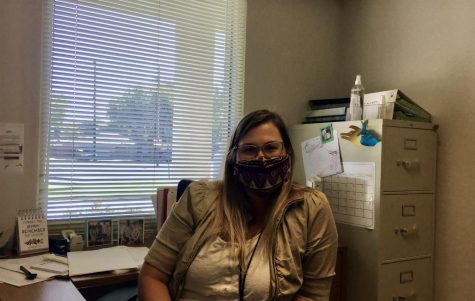
Staff morale, in particular, has been low and unstable, as the new and constant developments with the COVID pandemic require extreme resilience plus flexibility to pivot and adapt.
“Everybody’s at their max – we go to work and it’s stressful, we go home and it’s stressful, and there’s just not really a reprieve or anything from that. We’re all learning how to take care of ourselves as adults while we try and help the students take care of themselves,” said Twohig.
She asserts that change is hard for everyone to deal with, and offers those who are struggling a pertinent piece of advice: be kind to yourself and others.
“Give yourselves grace and permission to not have it all figured out as you’re [going through] this new chapter, [because] a lot of the world has expected we can just go back to life now and be normal again, but the reality is that normal is different,” said Twohig.
She encourages all Amador students and staff to focus on boosting school spirit and creating a sense of community.
“Community is essential, it’s the medicine that we need right now. Just remember that sometimes all that’s needed is just that presence and caring person, and the tool in the toolbelt isn’t necessarily the thing that’s making the difference, it’s you being there and being available,” said Twohig.
The State of Our School Podcast Series
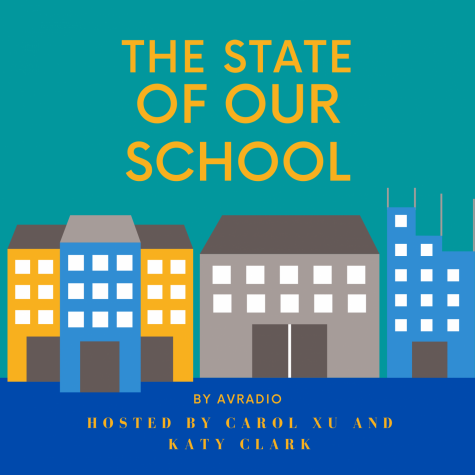
Episode 1: Isolation
Amador students and staff share the different challenges they experienced last year during remote-learning.
Music Credit: All royalty-free music from Soundtrap
Episode 2: Return of the Living Dead
As we return back to school, the Amador body reflects on the transition from online to in person, highlighting their insecurities and their excitement.
Music Credit: All royalty-free music from Soundtrap
Episode 3: Spirited Away
Individuals at Amador have been hit with a new wave of school spirit, and explain how school spirit is important to overall morale.
Music Credit: All royalty-free music from Soundtrap
Episode 4: Words of WisDon
People of all different perspectives offer impactful and relevant advice to the Amador body, drawing on their unique experiences from COVID.
Music Credit: All royalty-free music from Soundtrap
Your donation will support the student journalists in the AVJournalism program. Your contribution will allow us to purchase equipment and cover our annual website hosting costs.
